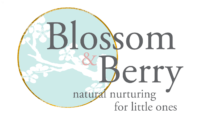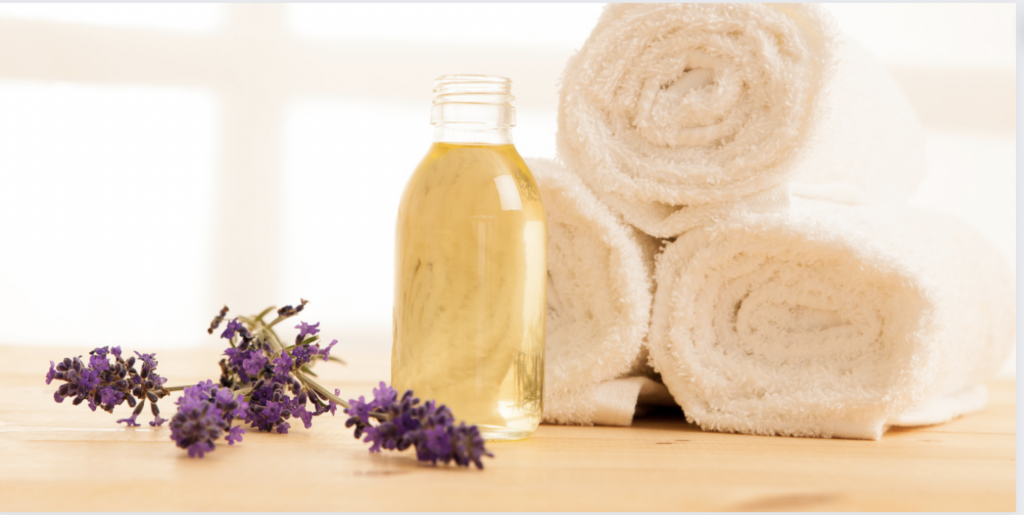When to use oil on the skin for a newborn
Oils For Newborn skin -What’s The Best Option?
There has been lots of discussion on what is the safest oil for new born babies. It is important to be aware that baby massage is practiced in many different cultures around the world and each has its own preference on the oil used based on history and tradition. This is very important to honour and respect. Baby’s skin is very delicate so we must ensure that we are using the safest and most gentle option and to care for it.
There has been some confusion on what is the best oil to use based on conflicting views and some inconsistencies in advice from health professionals, NICE guidelines and other experts in the field (Walker et al. 2005; Meza 2013) Tradition has also played a part in determining the choice of oil used. In India, mustard seed oil was largely used for massage, but later was shown to be potentially damaging to the skin.(Darmstadt GL, 2008).
Essential Oils-Newborn skin
Essential oils should be avoided on new-born skin for massage as they are very strong. The use of any essential oils on babies and children’s skin should be supervised by a qualified aromatherapist with specify knowledge in this area and is generally acceptable from when a baby is three months. Using a product with no scent is best to avoid confusion for the baby and to not overload the olfactory system. Some studies have suggested that the addition of some essential oils to products can disrupt the hormonal balance of children and therefore may be best avoided (Fergie, 2010). Your natural scent is what your baby loves the most so using essential oils can be distracting.
Mineral Oil or Baby Oil for newborn skin.
Mineral oil often labeled “Baby Oil” is a petroleum based product which is not absorbed by the skin, rather creates a barrier on the surface. Studies suggest that it can have some benefits in maintaining hydration and reducing infection (Stamatas, 2008) through its properties but it does not allow the skin to “breathe” and it has no nutritional value to the skin as it contains no vitamins. It is not advisable to use mineral oil for baby massage.
Olive Oil and Sunflower Oil debate for newborn babies
Olive oil was often cited as the best option for baby skin especially for conditions such as cradle cap. However, recent studies have now questioned its use. Research has concluded that that oleic acid, which is contained in olive oil, delays skin barrier recovery on damaged skin (Danby et al 2013). It is now widely avoided for use on new-borns.
Organic sunflower oil has been the preferred choice of baby massage instructors for the last 5-8 years as it has many properties which make it ideal. It has almost no smell, is full of vitamins, absorbed into the skin easily and if it is ingested by the baby, causes no harmful effects. It is also low in oleic acid and is high linoleum acid which has antibacterial, regenerating, restructuring and moisturising properties (Stoia et al, 2015; Danby et al 2013).
However a recent control trial on infant skin at the University of Manchester involving a group of 115 new born infants indicates sunflower oil delays the development of the crucial skin barrier function, damaging the integrity of the superficial layer of skin, the stratum corneous (Cooke et al. 2015). As a result of the study, Alison Cooke, lecturer in midwifery concluded that;
“If the skin barrier function is a wall with bricks made of cells, then the lipid lamellae is the mortar that holds it together. If it isn’t developed enough then cracks appear which let water out and foreign bodies through…oil prevents this mortar from developing as quickly and this could be linked to the development of conditions such as eczema.”
Interestingly, the skin of the babies who received the oils tended to be better hydrated but the researchers felt that since the implications of the effect on the lipid layer weren’t fully understood, this was not enough of a benefit to outweigh possible harm. Consequently the study has concluded that they cannot recommend the use of either sunflower or olive oil on babies’ skin and more research is required. (Manchester.ac.uk. 2015)
This study focuses on newborn babies so it’s an important one to consider. As a result of this study, it would appear that it is prudent to avoid sunflower oil on the skin new born babies (under 4 weeks) even though some studies suggest that it can be particularly beneficial for pre term babies and new-born skin. There is no evidence that sunflower oil it is harmful for the skin of babies over 4 weeks old, although care should be taken when introducing products to baby’s skin under the age of six weeks particularly if there is a history of atopic eczema.
This again must be balanced with cultural traditions and individual variations of baby massage practice across the world. There is much cultural practice that does not support this idea.
Coconut Oil For Newborn Skin
In replacement of sunflower oil, coconut oil is a good choice. Coconut oil contains oleic acid, the same fatty acid found in olive oil which means it can make skin more permeable but it’s in a relatively low amount (around 5-6% in coconut oil compared to 55% plus in olive oil). Coconut oil is mainly made up of lauric acid (around 48%), as well as caprylic acid (9%) and linoleic acid(1-2%). However there has not been a full scale study on the use of coconut oil on baby’s skin so it is difficult to fully recommend without a full trial. What is clear however is that it would seem safer to use an organic, natural based product on babies skin opposed to a highly perfumed or processed product.
Use of Water or No Medium on Newborn skin.
Recent evidence has suggested that water may not be the optimal skin cleanser for new-borns (J Eur Acad Dermatol Venereol. 2009). This provides further confusion for parents. Water alone is a poor cleanser and does not remove fat-soluble substances. It can also effect the pH of the skin and may weaken the skin barrier (Lavender T, Bedwell C, O’Brien E et al 2011). New born babies’ skin may be best to be left to settle after birth protected by its layer of vernix. Current advice is to not bathe babies immediate after birth but allow this layer of vernix on the skin to protect the baby. Skin to skin can still take place in many forms to enable the process of bonding to occur. Massage without oil can also be beneficial although the benefits were shown to be reduced. (Sankaranarayanan, 2005).
Conclusion
In conclusion there is a lot of conflicting and interesting research on what is appropriate to use on newborn babies’ skin. Further investigation, clearer advice and more studies are required. In terms of massage I feel we can make these recommendations in light of the current studies;
Advice for newborn skin with oils
♡ It is best to avoid the use of oils on the skin until baby is at least one month old unless there is a cultural practice that supports it. On current advice, olive oil and sunflower oil should be avoided on new born skin (under four weeks old).
♡ Coconut oil appears to be suitable for newborn skin based on its chemical make up but within the parameters set above, (although no study has been conducted on its use)
♡ Although sunflower oil is not suitable for new born baby’s skin, no study has been done on its suitability for babies older than 4-6 weeks. After 6 weeks when the skin has matured, sunflower oil could be used.
♡ Avoid essential oils for new born skin
♡ Always do a patch test on oils on a baby’s skin.
If you want to find out more about massage, yoga and nurturing touch for babies, check out the rest of the website for our free resources.
REFERENCES
Blume-Peytavi U, Cork MJ, Faergemann J et al. Bathing and cleansing in newborns from day 1 to first year of life: recommendations from a European round table meeting. J Eur Acad Dermatol Venereol. 2009;23:751-9.
doi: 10.1111/j.1468-3083.2009.03140.x
Lavender T, Bedwell C, O’Brien E et al. Infant skin-cleansing product versus water: A pilot randomized, assessor-blinded controlled trial. BMC Pediatrics. 2011;11:35. doi:10.1186/1471-2431-11-35
Walker L, Downe S. Gomez L, (2005). A survey of soap and skin care product provision for well term neonates. Br J Midwifery 13: 768-73
Meza T de, (2013). Clinical Practice, Should we use olive oil or sunflower oil on a preterm infant’s skin? Volume 9 Issue 5, pages 170-172
O’Connor M survey, Community Space Mother and Baby Groups, Prescot, April 2016
Danby SG, AlEnezi T, Sultan A, Lavender T, Chittock J, Brown K, Cork MJ, (January 2013) Effect of olive and sunflower seed oil on the adult skin barrier: implications for neonatal skin care.
Stoia M, Oancea S, (April 2015) Selected Evidence-Based Health Benefits of Topically Applied Sunflower Oil
Darmstadt GL, Saha SK, Ahmed AS, et al. (2008) Effect of skin barrier therapy on neonatal mortality rates in preterm infants in Bangladesh: a randomized, controlled, clinical trial. Pediatrics 2008, 121(3): 522-9
Cooke A, Cork MJ, Victor S, Campbell M, Danby S, Chittock J, Lavender T. (2015) Olive Oil, Sunflower Oil or no Oil for Baby Dry Skin or Massage: A Pilot, Assessor-blinded, Randomised Controlled Trial (the Oil in Baby Skincare Study). Acta Derm Venereol, eScholoarID: 281521
Online article: http://www.manchester.ac.uk/discover/news/olive-and-sunflower-oil-on-baby-skin-weakens-natural-defences
Stamatas GN. de Sterke J, Hauser M, et al. Lipid uptake and skin occlusion following topical application of oils on adult and infant skin. J Dermatol Sci 2008; 50: 135-42
Professor Richard Cork, head of academic dermatology at the School of Medicine and Biomedical Sciences at Sheffield University: Sep 2010:
http://www.dailymail.co.uk/health/article-1315728/How-gentle-skin-creams-baby-eczema.html
Spergel JM, Paller AS, From atopic dermatitis to asthma: the atopic march. Ann Allergy Asthma Immunal 2010; 105: 99-106
Field T, Diego M, Hernandez Reif M. Preterm Infant Massage Therapy Research: A Review. Infant Behaviour and Development. April 2010; 33(2): 115-124
Sankaranarayanan K, Mondkar JA, Chauhan MM, Mascarenhas BM, Mainkar AR, Salvi RY. Oil massage in neonates; an open randomised controlled study of coconut versus mineral oil. Indian Pediatrics. 2005; 42:877-84
Fallah R, Akhavan K, Golestan M, Fromandi M. Sunflower oil versus no oil moderate pressure massage leads to greater increases in weight in preterm neonates who are low birth weight. Early Human Development, 2013 Sep; 89(9):769-72
Conner JM, Soll RF, Edwards WH. Topical ointment for preventing infection in preterm infants. Cochrane Database Syst Rev. 2004; (1)

